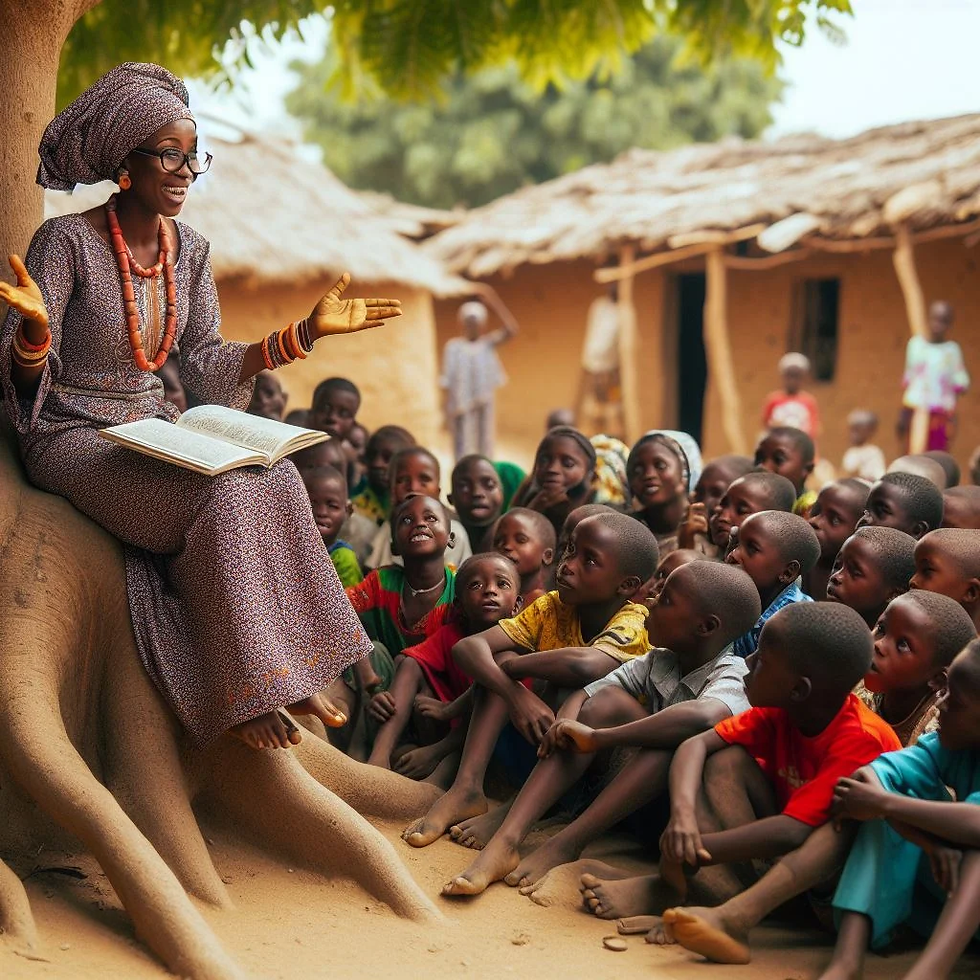Oral Tradition and the Preservation of African History
In many African societies, history has been passed down through generations not by written records but through the power of oral tradition. This storytelling practice, which includes spoken word, songs, proverbs, and chants, has been essential in preserving the continent’s rich heritage, values, and collective memory. Long before the introduction of formal writing systems, African cultures relied on griots (storytellers or oral historians), elders, and community leaders to maintain and share their history.

Credit: Iwari Africa
Oral tradition is more than just a means of communication; it serves as the heartbeat of many African communities. Through stories of ancestors, battles, migrations, and triumphs, Africans connect with their past and gain wisdom for the future. For instance, the epic tales of Sundiata Keita in Mali and the Zulu nation’s historical accounts have been passed down for centuries, offering insights into the lives of past leaders and significant events that shaped their societies.

Credit: Africa Digital Library
What makes oral tradition so powerful is its ability to adapt and remain relevant. As stories are passed down, they are often adjusted to reflect contemporary values, making them a living history that evolves with the people. In many African communities, oral storytelling is also a communal activity, strengthening social bonds and fostering a sense of belonging. These stories aren’t just told for historical purposes; they teach lessons, enforce morals, and remind people of their identity and cultural pride.
Today, oral tradition still plays a significant role in preserving African culture. While modern technology has introduced new ways of recording history, the spoken word remains a vital tool in many parts of the continent. Folktales, myths, and legends continue to be shared in villages and urban centers alike, ensuring that Africa’s history, values, and wisdom endure for future generations.

Credit: Africa Digital Library
In the context of modern Africa, oral traditions have even found new life through contemporary mediums. Poets, musicians, and filmmakers draw on these ancient stories to inspire their work, ensuring that traditional African history is celebrated and integrated into the global cultural landscape. The continued relevance of oral tradition in an increasingly digital world speaks to its resilience and its profound role in shaping African identity.
By preserving history through storytelling, African societies have maintained a unique sense of continuity, bridging the past with the present. Oral tradition remains a testament to the enduring power of African culture, keeping alive the memories of those who came before and ensuring that their wisdom continues to guide future generations.
Komentar